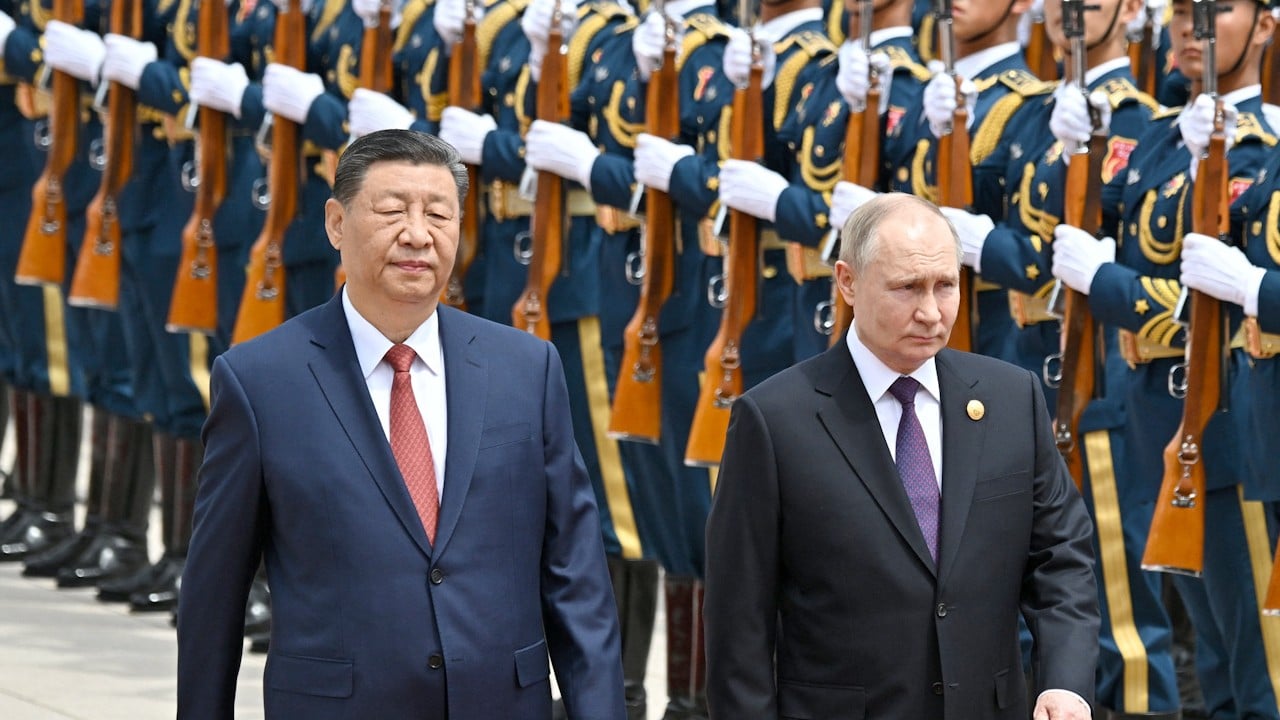China and Russia on Thursday pledged to step up their military ties, despite Western pressure on Beijing to rein in Moscow from advancing in Ukraine.
In a joint press conference in Beijing, Chinese President Xi Jinping said he and visiting Russian leader Vladimir Putin had agreed that “a political settlement of the Ukrainian crisis is the correct direction”. Xi also said China would like to “play a constructive role” in restoring peace in the European continent, as the Chinese government had stated when Russia invaded Ukraine in 2022.
The meeting between Xi and Putin came soon after the Chinese president returned from his first European visit in five years last week. During the visit, Xi was urged by French President Emmanuel Macron and European Commission President Ursula von der Leyen to use his influence on Russia to end the war in Ukraine and to control the flow of dual-use goods to Moscow’s military.
In a joint statement released on Thursday, Beijing and Moscow said they would “further deepen mutual military trust and cooperation” by expanding scales of joint military exercises, conducting regular joint maritime and air patrols, and strengthening their coordination under bilateral and multilateral frames.
According to the statement, China and Russia will work together in areas such as artificial intelligence, telecommunications, the Internet of Things, open source technologies, cyber and data security, and radio frequency coordination – fields considered to have security implications.
Space programmes, such as an international scientific research station on the moon, deep space exploration and cooperation between China’s BeiDou and Russia’s Glonass satellite navigation systems are also included.
Putin’s entourage in Beijing includes his newly appointed defence minister, Andrei Belousov, and Yuriy Borisov, who leads the Russian space agency Roscosmos.
The statement condemned the United States for what it said were violations of the strategic nuclear balance and non-proliferation, the deployment of land-based intermediate missiles in the Asia-Pacific region and globally, for conducting exercises targeting Russia and China, and plans for the militarisation of space.
A visit of unusual significance? Why Putin’s trip may define China-Russia ties
A visit of unusual significance? Why Putin’s trip may define China-Russia ties
The upgrading of defence and military ties came at a sensitive time as the Russian armed forces have made advances in Ukraine, venturing deeper into the strategically critical city of Kharkiv and claiming to have seized more settlements.
Visiting Kyiv earlier this week, US Secretary of State Antony Blinken announced US$2 billion in additional military aid for Ukraine, following the US$61 billion aid package approved by the US Congress last month. But the American assistance may not reach Ukraine until early July.
China has claimed to be neutral in the Russia-Ukraine war and has called for a ceasefire. But it is seen by the US and its European allies to have sided with Russia as Beijing has refused to condemn Russia’s invasion and continues to maintain close ties with Moscow, boosting bilateral trade despite Western sanctions.
During his visit to Beijing last month, Blinken warned China to stop “aiding Russia’s war effort in Ukraine”, and accused China of being the “primary contributor” to Moscow’s war by providing about 70 per cent of the machine tools and 90 per cent of the microelectronics Russia imports, including critical components for weaponry.


